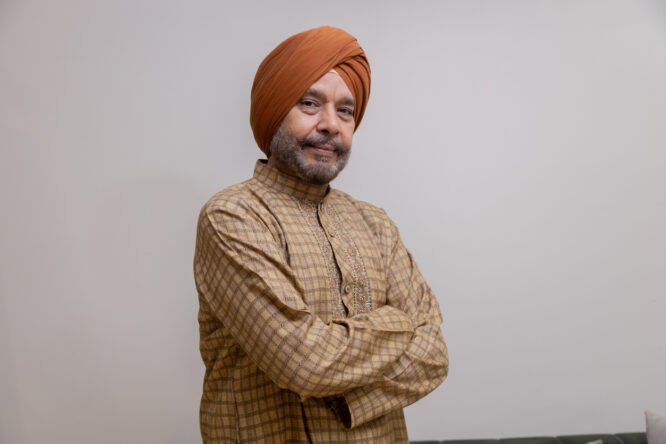It’s easy to roll your eyes at someone who still double-clicks links or prints their boarding pass “just in case.”

To Gen Z, boomers can sometimes seem like they’re living in a different reality altogether. However, if both generations were to dig a bit deeper, they’d find that while the packaging may be different, the content underneath is shockingly similar. The truth is that most boomers aren’t out of touch—they’re just dressed in cardigans instead of crop tops, and they vent in person instead of on finstas. Gen Z often assumes boomers don’t understand these things, when really, they’ve been living through it longer than we think.
1. Being overwhelmed by technology
 Source: Unsplash
Source: Unsplash Gen Z jokes about boomers struggling with phones, but how many of us are low-key burnt out from juggling 12 open apps, 4 group chats, and a barrage of notifications? Boomers might tap with one finger, but they also know what it’s like to long for a moment of peace. They lived through the shift from rotary phones to smartphones. That constant tech adjustment didn’t start with Gen Z. Boomers have been adapting for decades, just not always with emojis and TikTok filters.
2. Wanting to delete everything and live in a cabin

Gen Z loves to daydream about throwing their phone in a lake, ghosting all responsibilities, and living off-grid. Sounds revolutionary, right? Boomers called that “moving to the countryside,” and half of them actually did it. They’ve been retreating to gardens, buying remote cottages, and finding solace in silence long before it was a trend. You think you invented burnout recovery? They built it with compost bins and handwritten letters.
3. Questioning the system

Gen Z is sceptical—of politics, big business, healthcare, the economy. Fair, but boomers didn’t just trust authority blindly. They lived through Nixon, strikes, inflation, war protests, and societal upheaval that made trust feel just as fragile. Your memes are sharp, but their side-eyes were sharper. They marched, voted, and protested long before hashtags existed. Disillusionment didn’t start with your feed; it’s generational muscle memory.
4. Feeling like adulthood is a scam

There’s a lot of “no one prepared us for this” energy in Gen Z. You’re not wrong, but boomers didn’t get a manual either. They grew up with equally unrealistic promises about what adulthood was supposed to be. Many spent decades chasing a dream that looked good on paper and felt hollow in real life. They know what it’s like to hit milestones and still feel lost. The “what am I even doing?” crisis? They’ve lived it, just with fewer avocado references.
5. Quiet quitting, just in different shoes

Gen Z reframed work boundaries with the term “quiet quitting,” but boomers have been doing subtle rebellion since before it was trending. Leaving at 5 p.m. sharp, taking long lunches, faking printer jams—classic moves. They just didn’t post about it. Their resistance was quieter, but just as real. Punching out without guilt and mentally checking out on a Wednesday afternoon? That’s generational overlap in its purest form.
6. Struggling to find identity in a noisy world

Gen Z is navigating a million messages about who to be, how to look, what to believe. It’s exhausting, for sure, but boomers weren’t immune—they just had fewer outlets to process it publicly. They were told what to be, too. Their rebellion wasn’t always visible, but many quietly built lives that defied expectations. They didn’t have Instagram bios, but they still wrestled with identity, just with more whispering and less branding.
7. Caring deeply about justice without broadcasting it

Gen Z is loud about justice, equality, and making the world better. Boomers often seem quiet by comparison—but that doesn’t mean they don’t care. Many boomers marched, organised, wrote letters, and shaped change in their own time. They don’t post infographics, but they’ve donated, volunteered, and mentored. Their activism may not be aesthetic, but it’s been real for decades.
8. Being scared of irrelevance

Gen Z fears becoming obsolete in a fast-moving world, but guess what? So do boomers. They’ve already seen their skills phased out, their knowledge undervalued, their voices overlooked in meetings. That same insecurity you feel when a new platform drops and you don’t get the joke? They feel it daily, only it’s not just digital. It’s social, professional, and emotional. You’re not alone in that fear of fading.
9. Feeling disconnected in a connected world

You can be online 24/7 and still feel deeply lonely. Gen Z knows that too well. However, boomers have seen connection change forms, from dinner tables to group chats, from phone calls to text chains they barely understand. They feel the ache of distance too. They’ve lost friends to time, family to silence, and community to busyness. The craving for real connection? That’s not new. They just express it differently.
10. Having to explain themselves constantly

Gen Z is tired of justifying every feeling, identity, or decision. Boomers have done their fair share of explaining too—to bosses, spouses, kids, even each other. They’ve had to defend career shifts, lifestyle choices, and moments of reinvention—often without applause or hashtags. If you’re tired of proving yourself, know that many boomers have been quietly doing it for decades.
11. Trying to stay hopeful in a broken world

Gen Z’s optimism often feels buried under climate anxiety, political chaos, and social fatigue. Boomers have watched that cycle repeat. They’ve seen progress and pushback, joy and devastation, hope rise and fall. They still garden, paint, start side hustles, and fall in love, even after everything. That quiet hopefulness might not be trending, but it’s still there. They’re proof that you can feel tired of the world and still care deeply about it.
12. Dealing with body image pressures

Gen Z faces filters, curated feeds, and influencer perfection, but boomers weren’t immune to impossible beauty standards either. The magazines and TV shows of their time carried their own harsh messages. They’ve had decades of being told how to look, what’s “appropriate,” and when they stop being relevant. Body acceptance? They’re still working on it, too. The difference is, no one gave them the words for it back then.
13. Wanting to leave something meaningful behind

Gen Z talks a lot about legacy—impact, change, purpose. The thing is, boomers have been quietly thinking about that too, especially as they enter later stages of life. They want to be remembered well, to make peace with what they’ve built, and to know they mattered. That desire to leave the world a little better spans both sides of the generational divide.
14. Being misunderstood

At the heart of it all, both generations know what it feels like to not be seen clearly. Gen Z is often brushed off as sensitive or entitled. Boomers are painted as rigid or out of step. However, the reality is, both have more in common than they think: the need to be heard, respected, and known beyond the stereotype. We’re all just trying to figure it out, with different playlists and internet speeds.




